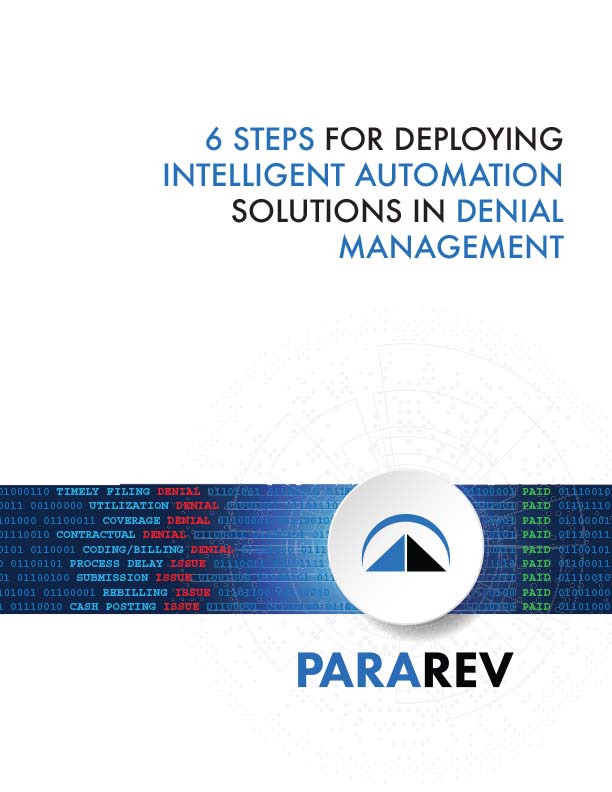For physicians, being forced to obtain insurance company prior authorization (PA) before providing or ordering a specific treatment or drug probably feels a lot like needing a permission slip from your parents in high school. Not only does the process cause frustration and resentment, it can also lead to treatment delays and substandard care.
A 2018 physician survey by the American Medical Association (AMA) highlighted the negative impact PAs can have on the practice of medicine. According to the survey, 91 percent of responding physicians said PAs delayed access to necessary treatment, with 65 percent saying they waited, on average, one business day for PA approval and 26 percent reporting they waited at least three days.[1]
More critically, 28 percent of physicians said the PA process had led to a serious adverse event (e.g., death, hospitalization, disability/permanent bodily damage, or other life-threatening event) for a patient under their care.[2] More than 90 percent said PAs had a significantly negative or somewhat negative impact on clinical outcomes, and 75 percent said the PA process had resulted in patients abandoning their recommended course of treatment.[3]
According to the survey, practices are required to complete 31 PAs per physician, per week, on average, and nearly 40 percent of practices have staff working exclusively on authorizations.[4] Beyond adding to administrative overhead, PAs can have a significant impact on provider cash flow if a claim for a service requiring prior authorization is denied or delayed.
Legislative relief coming?
In releasing the survey results earlier this spring, the AMA decried insurers’ “foot-dragging and opposition” around implementation of proposed PA process advances developed through a consensus effort involving the AMA and other national groups representing hospitals, medical groups, pharmacists and health plans.[5]
The good news is that the five areas of improvement identified and articulated in the groups’ consensus statement have now formed the basis for newly proposed federal legislation that would streamline the PA process for Medicare Advantage (MA) plans.
Known as the Improving Seniors’ Timely Access to Care Act (HR 3107), the bill was introduced in early June in the House of Representatives with sponsorship from two Democrats and two Republicans.[6]
Under the act, the Centers for Medicare and Medicaid Services (CMS) would foster greater transparency around the PA process by requiring MA plans to report to CMS a list of all items and services that are subject to PA, the percentage of PA requests approved during the previous plan year by service and/or prescription, and the average amount of time elapsed between the PA request and final determination.[7]
In addition, HR 3107 would reduce the administrative burden of PAs by requiring that plans accelerate the development of an electronic process to replace the primarily phone-and-fax-driven approach currently used in most instances.
Finally, the act would require that PAs adhere to evidence-based guidelines and are developed in consultation with physicians. MA plans would likewise be required to conduct annual reviews of items and services for which PAs are mandated. The reviews would reflect input from physicians as well as an analysis of past PA requests and current clinical criteria.[8]
CORE recommendations
The introduction of HR 3107 follows the release in May of parallel guidelines developed by the Council of Affordable Quality Healthcare (CAQH) CORE aimed at strengthening the accuracy and consistency of the PA process.
Noting that 88 percent of prior authorizations currently are conducted either by phone or fax, the CORE recommendations are designed to standardize data shared between plans and providers, eliminate unnecessary back-and-forth and accelerate adjudication timeframes. According to CAQH, full adoption of a standardized electronic prior authorization process could result in savings of 70 percent per transaction.[9]
CAQH CORE is an industry-led consortium that supports the creation and adoption of healthcare operating rules that support standards, accelerate interoperability and align administrative and clinical activities among providers, payers and consumers.
PA denial expertise
As new regulations are enacted to streamline the PA process, it will still be important to understand the reason behind PA denials. ParaRev works with a range of provider clients to identify and mitigate denial root causes for emergent, inpatient, outpatient and ancillary services. From this experience, we’ve determined that failure to obtain PAs represents one of the most common reason for denials.
Overcoming PA denials requires that hospitals be well-versed in an insurance company’s clinical policy bulletins, which describe what the carrier will and will not cover, what they consider to be medical necessity, and the treatments and drugs that require prior authorization.
In addition to helping providers identify and mitigate denials, ParaRev relies on trained personnel, including RNs and registered health information technicians (RHITs), to assist with denial appeals. Contact ParaRev today to learn more about how we can help you identify the source of your PA denials and develop a process to help prevent them from happening again.
- “2018 AMA Prior Authorization Physicians Survey,” American Medical Association, 2019.
- Ibid.
- Ibid.
- Ibid.
- “Health insurance industry slow to adopt prior authorization reforms,” American Medical Association press release, March 12, 2019.
- “Legislation introduced to streamline prior authorization in Medicare Advantage,” Gastro.org, June 5, 2019.
- Ibid.
- Ibid.
- “CAQH CORE Releases Operating Rules to Promote Automation for Prior Authorization,” CAQH press release, May 5, 2019.

Overcoming the denial dilemma with intelligent automation. Learn how by downloading our whitepaper.
Related Posts
None found
